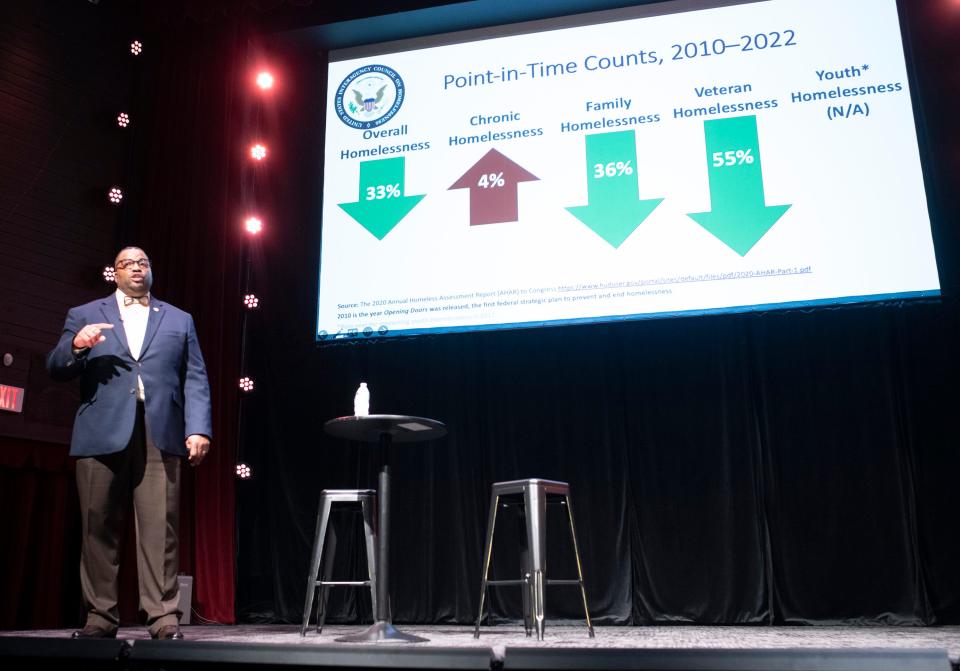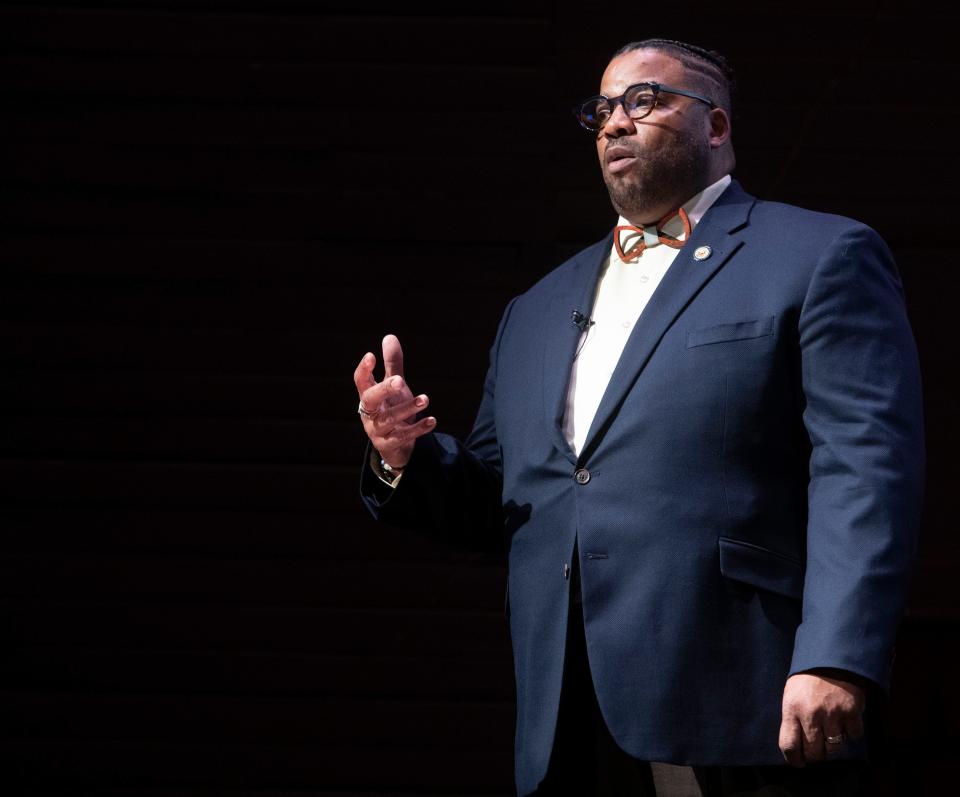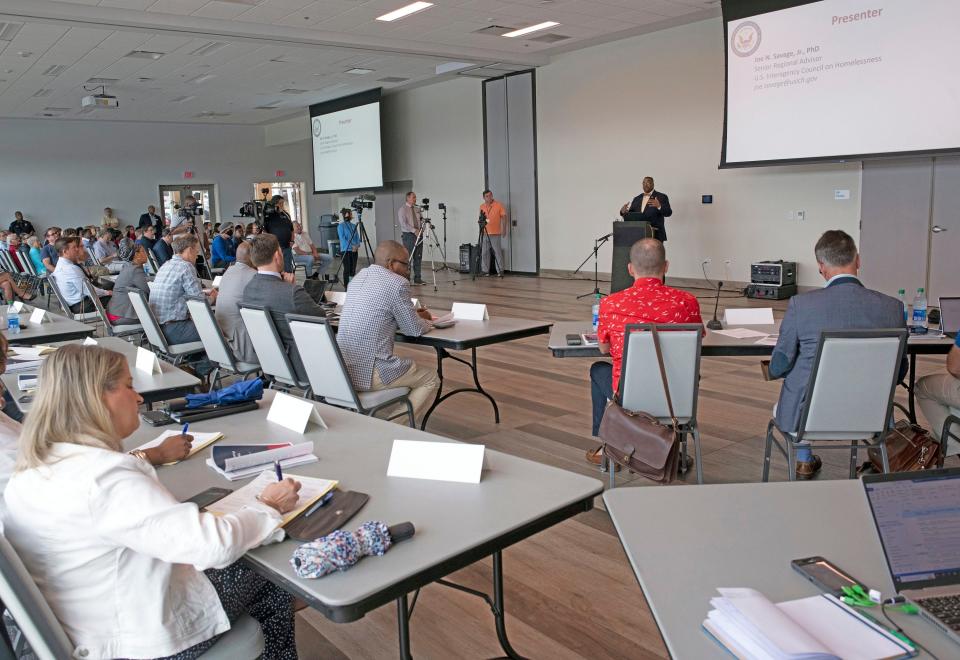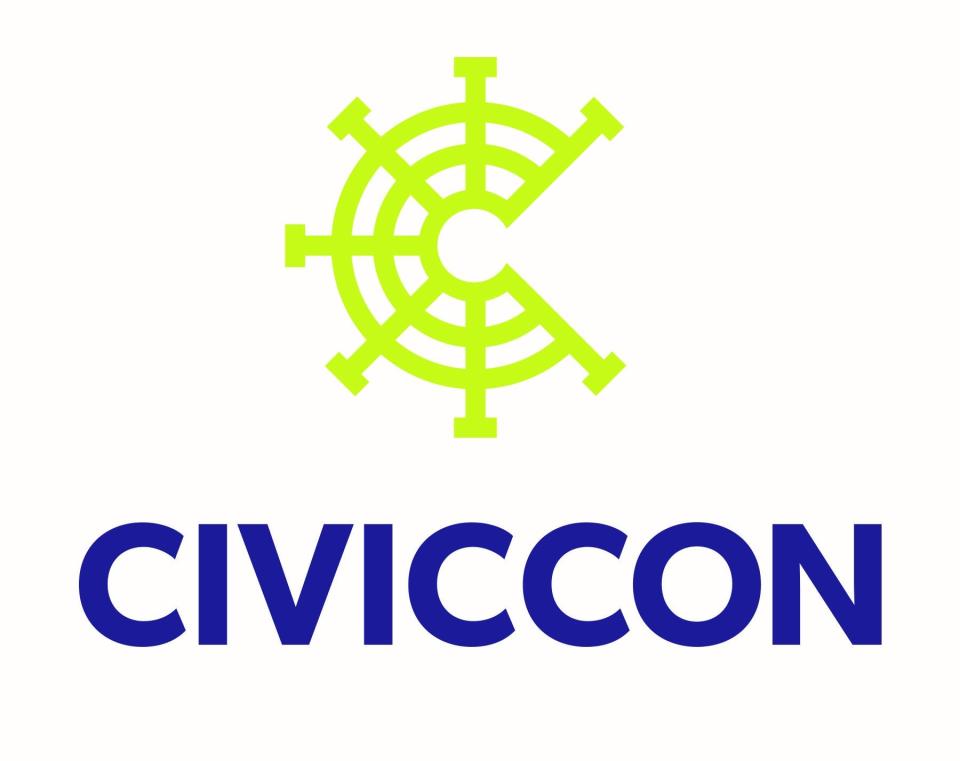Why haven't we solved homelessness? Because we've deemed too many "unworthy" of our help.
The message of Joe Savage's visit to Pensacola was simple: there are a lot of federal dollars out there to address homelessness, and communities who follow the government's "All In" approach to the issue stand a better chance of getting resources and results.
Savage, a senior regional advisor for the U.S. Interagency Council on Homelessness, helps communities understand and implement federal policies on addressing homelessness. Currently, 19 federal agencies are throwing their full weight behind strategies outlined in a December 2022 plan called "All In: The Federal Strategic Plan to Prevent and End Homelessness."
On Tuesday, Savage laid out an overview of the plan at both an evening CivicCon presentation and a morning joint meeting of the Pensacola City Council and Escambia County Board of Commissioners organized by Mayor D.C. Reeves.
"The reason why it's important to understand the framework as it relates to All In is because the better your community's plan is aligned with the priorities in the federal plan, the better your community will score, and the more dollars will come to your community when you apply for various funding opportunities that come out of the federal government," Savage said.
Joint meeting: Can Pensacola and Escambia County work together to reduce homelessness? They're going to have to.
Dig deeper: There's a plan to end homelessness and billions for communities that buy in. How it works.
The plan is based around three "foundation pillars" and three "solution pillars."
The foundation pillars are to lead with equity, use data and evidence, and collaborate at all levels. The solution pillars are to scale up housing and supports, improve homelessness response and prevent homelessness.

Savage said all of the pillars had been developed with a vast amount of stakeholder input and by studying data at the community and national levels.
"One of the big things that we heard from communities in regards to prior federal strategic plans is there really wasn't an emphasis on prevention," he said as an example. "... We can do everything we need to do to get people out of homelessness and into housing, but if we don't turn off the faucet that means people just come in as other people leave out. And so we really wanted to make sure that prevention was emphasized in this plan."
Some of the other priorities of the plan include an emphasis on addressing the disproportionate percentage of people of color experiencing homelessness, the overall lack of housing supply and the lack of supports to keep people in housing once they find it.
Brent encampment: The clock's ticking to clean up grungy Brent homeless camp. So far, nothing's been done
A bright spot in the report is data and community feedback have shown that targeted programs can move the needle on homelessness.
For instance, Savage said the number of homeless veterans in the U.S. has decreased about 55% since 2010, a drop he attributed to a dedicated stream of funding and support programs from organizations such as the departments of Veterans Affairs and Housing and Urban Development.
However, he attributed the vast amount of funding that flowed into veteran-oriented program to the fact that service members are generally considered among the "worthy poor" by society.
Savage said historically, society has tended to view people who fall into hard times through no fault of their own — such a widows, orphans or veterans suffering from service-related disabilities — as more deserving of the community's support than the "unworthy poor" whose "moral failings" such as drug and alcohol use or untreated mental illness put them in bad situations.

"I don't want you to use my tax-dollar resources that I'm paying to the federal government to give someone services and help when they're in that situation, because it's their fault. That is the common perception," Savage said. "And that's what makes talking about funding homeless so difficult, is that misperception."
Savage stressed that homelessness isn't an issue of morality, it's an issue of resources, and the best thing people can do to drum up support for solutions is to educate themselves, their peers, their neighbors and their elected officials.
"Homelessness is a systemic issue in our country that is related to the lack of affordable housing," he said. "We have a severe affordable housing shortage in this country, and our social safety net just isn't in place to give people the help and the assistance that they need when they need it."
He said that housing is becoming unaffordable even for working class people such as teachers and EMTs, so it's that much harder for lower income families.
"We have significant issues when it comes down to income and a living wage," he said, "but when we put that aside, and we decide we want to get the resources to get people off the streets and into housing, we can make significant progress. And so, our argument to Congress is, guess what, if you put up the same resources that you put up for veterans, we can make the same progress with these other subpopulations."
Savage said the ideal long-term solution to homelessness is to create enough affordable housing for everyone, but in the meantime there are some simpler things communities can to make a difference.
Changing zoning ordinances to make it easier to build multi-family housing in neighborhoods is a simple first step that makes the surrounding community better.
"If affordable housing is developed in your neighborhood, people aren't going to start breaking into your home," he said, addressing some common misconceptions. "As a matter of fact, that data shows the total opposite of affordable housing actually increases the value of housing."

Savage also suggested communities invest small pots of funding to connecting families at risk of losing their homes with legal counsel, as data has proven having a lawyer present at eviction hearings often results in more flexibility from landlords and better outcomes for families.
Another option is land banks: vacant, abandoned or tax delinquent properties that are sold at low prices for the purpose of building affordable housing.
He also suggested investing in livable wages for people conducting outreach to chronically homeless individuals and populations who claim they prefer the freedom of living on the fringes of society.
"Where we've seen communities be successful at getting those individuals to 'come inside,' it took continuous engagement. ... Whether our communities realize it or not, your outreach teams are critical, but they're typically the lowest paid individuals. And the thing that you have to understand about outreach is if you're trying to engage this particular person (to utilize social services), it takes building a relationship with that person and it's that relationship that serves as that persuasive element. But how can you build a relationship when the outreach worker changes every two months because people are leaving those positions?"
Still, Savage said the fact that the Pensacola community, and Mayor Reeves in particular, had sought him out to have a conversation about ending homelessness is a good sign there is political will to create change.

"A mayor is an elected person, which means at some point that mayor will no longer be in office," Savage said. "My advice to you is take the ball, run with it as far as you can with the support of the mayor that you have now, and maximize those resources," he said. "And then I encourage communities, if you can really push hard enough, get things put down in legislation that lasts."
The full All In strategic plan is available at usich.gov/all-in.
Savage's presentation was part of CivicCon, a nonprofit partnership with the Pensacola News Journal to make Pensacola a better place to live, grow work and invest. To learn more visit pnj.com/civiccon.
This article originally appeared on Pensacola News Journal: Pensacola homelessness CivicCon speaker Joe Savage talks All In plan.